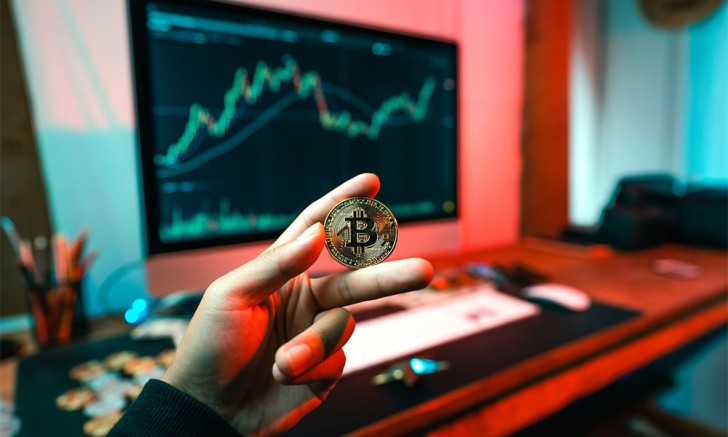- The UAE is one of the most progressive countries in terms of cryptocurrency regulation
- Cryptocurrencies are considered commodities in the UAE
- You can buy and sell cryptocurrencies through licensed exchangesin the UAE
- There is a limit on how much you can trade each day
- You can trade cryptocurrencies 24/7
- Taxes will be levied on profits from cryptocurrency trading
- You need to be aware of scams when trading cryptocurrencies
Cryptocurrencies are decentralised, not subject to government or financial institution control. Bitcoin, the first and most well-known cryptocurrency, was created in 2009. Since then, hundreds of different cryptocurrencies have been developed.
Crypto fx trading is a rapidly growing phenomenon. While still relatively new, cryptocurrency trading offers traders many advantages over traditional currency trading. Here are seven aspects of crypto trading you should be aware of before getting started.
The UAE is one of the most progressive countries in terms of cryptocurrency regulation
The UAE has been at the forefront of cryptocurrency regulation. In 2018, the Abu Dhabi Global Market (ADGM) released a regulatory framework for cryptocurrencies. It made the UAE one of the first countries in the world to provide a clear legal and regulatory framework for cryptocurrencies. The ADGM framework clarifies licensing compliance and anti-money laundering issues and offers investors protection from fraud and theft.
Cryptocurrency trading is growing in popularity in the UAE. It is due to many factors, including the increasing adoption of blockchain technology, the rise of initial coin offerings (ICOs), and the favourable regulatory environment. According to a Middle East Venture Partners (MEVP) report, the value of cryptocurrency trading in the UAE could reach $1 billion by 2021.
Cryptocurrencies are considered commodities in the UAE
In the UAE, cryptocurrencies are considered commodities, which means they are subject to the same rules and regulations as other commodities, such as gold and oil. The Dubai Gold and Commodities Exchange (DGCX) is the first exchange in the world to launch a cryptocurrency futures contract. The contract is based on Bitcoin and is denominated in U.S. dollars.
The DGCX’s launch of cryptocurrency futures trading was significant because it marked the first time that cryptocurrencies were traded on a regulated exchange. It also showed that the UAE is open to innovative financial products and technologies.
You can buy and sell cryptocurrencies through licensed exchangesin the UAE
The ADGM has licensed two exchanges for cryptocurrency trading:
- The Dubai Bitcoin Exchange, which BitOasis operate
- The Abu Dhabi Cryptocurrency Exchange, which ADCB operates
Both of these exchanges are regulated by the ADGM. To trade on either exchange, you must open an account and complete a Know Your Customer (KYC) process. Once your account has been verified, you can deposit funds and start trading.
There is a limit on how much you can trade each day
Each exchange has its limits on how much you can trade each day. For example, the daily limit for the Abu Dhabi Cryptocurrency Exchange is $100,000 per person. These limits are in place to prevent money laundering and other illegal activities.
With these limits in place, choosing an exchange that offers a high daily limit is essential. It will allow you to trade as much or as little as you want.
You can trade cryptocurrencies 24/7
These markets are open all day, seven days a week, allowing you to trade whenever you want. However, it’s important to remember that the markets are volatile and can move quickly, which means you could lose money if you’re not careful.
To mitigate this risk, it’s crucial to have a trading plan in place before you start trading, and it should include setting limits on how much you’re willing to lose and considering the volatility of the markets.
Taxes will be levied on profits from cryptocurrency trading
The UAE does not have any specific regulations or laws for taxing cryptocurrencies. However, this is likely to change in the future. The ADGM has said it is working on a taxation framework for cryptocurrencies.
In the meantime, it’s essential to be aware that profits from cryptocurrency trading will be subject to taxes in the UAE. It includes income, capital gains, and value-added tax (VAT). Speaking to a tax expert before you start trading is advisable to ensure you understand the tax implications.
You need to be aware of scams when trading cryptocurrencies
Cryptocurrency trading is still relatively new, and many scams target investors. These scams can take many forms, such as fake exchanges, phishing attacks, and Ponzi schemes.
To protect yourself, it’s essential to do your research before you invest in anything. It includes ensuring that the ADGM regulates the exchange you’re using. It helps if you also were wary of any investment that promises high returns with little or no risk.
 Editorial staff
Editorial staff

 Editorial staff
Editorial staff


